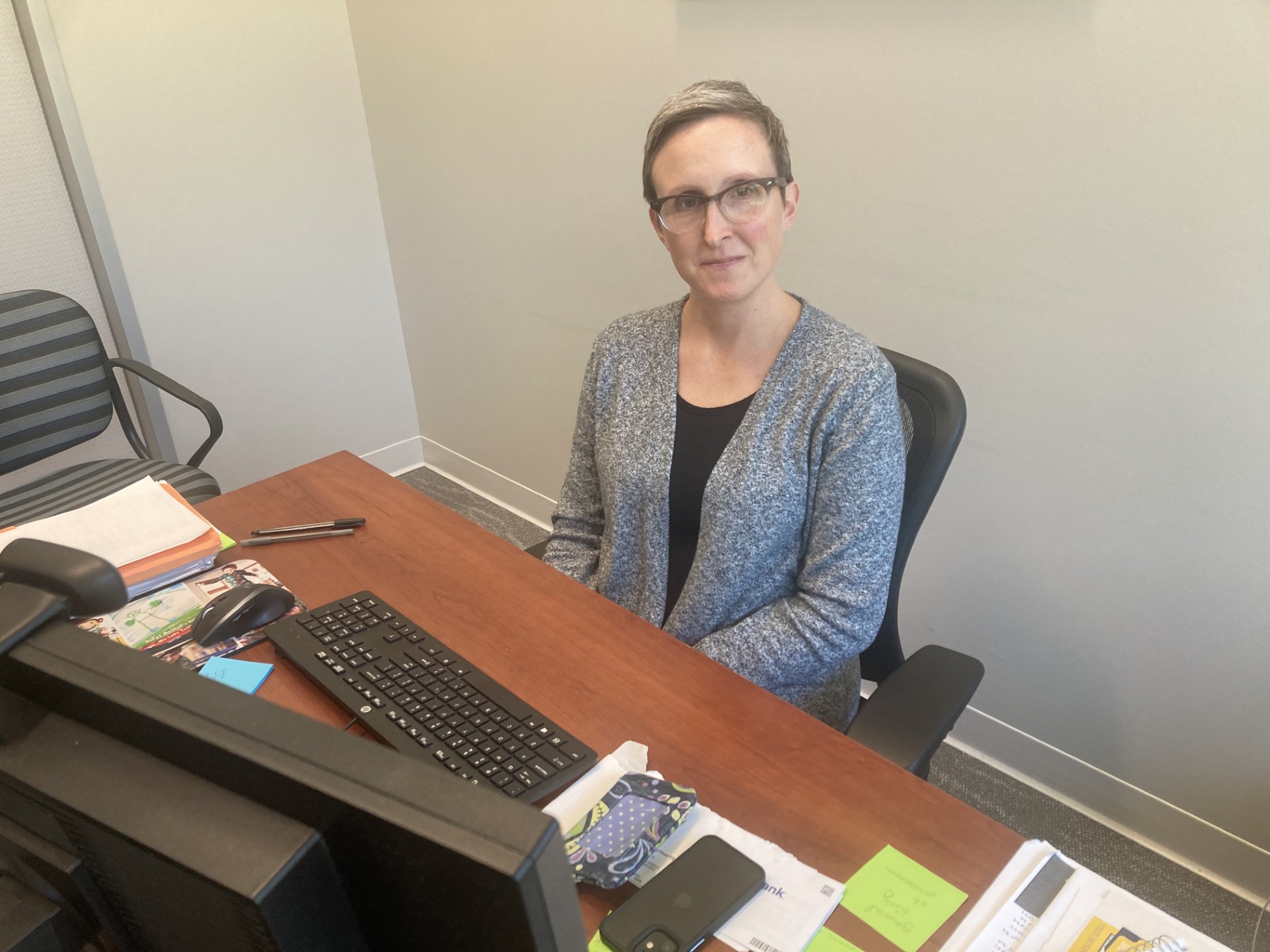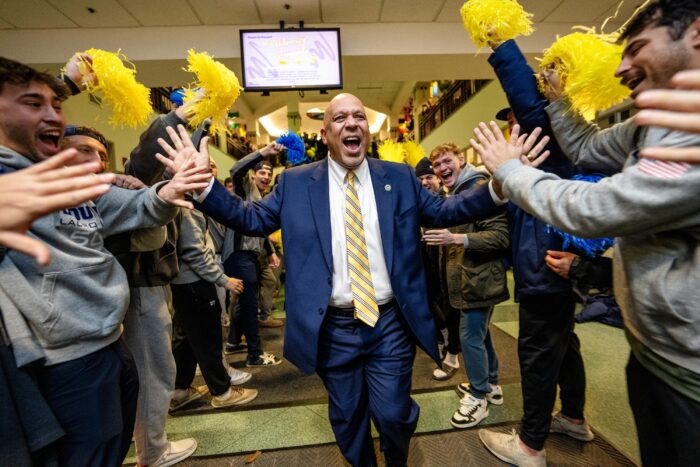About 50 students rely on Sara Koenig for advising services. Add non-advising appointments and random drop-ins to the mix and Koenig ends up with dozens of one-on-one interactions with students every week, almost all of whom need her help.
“For first-year students, especially, having that person they know they can go to is huge; without that, students would struggle a little bit,” Koenig says.
Koenig has been that go-to person for hundreds of students over the course of her 17 years at Marquette. In her role as records and student services coordinator, Koenig serves as the one-stop shop for getting connected to campus resources. When students need help with an issue — anything from classes to tutoring to mental health to residence life — they come to Koenig, who almost always knows the right person for the job.
What does the preparation process look like for an advising appointment?
Advising takes place all year, but for the registration advising period we have twice per year prior to registration, I meet with students to discuss classes for next semester, we talk about any issues they might have in their current classes and what that might mean for registration going forward, and any general issues they might have.
A lot of first-year students have trouble adjusting to college; it’s a difficult transition. They might talk to me about how to get involved on campus, different groups they want to join, how to reach out to their instructor for help in class and even where things are located on campus. So even though the conversation is usually about classes, it can go in a lot of different directions.
A lot of times, students come to you with problems that are not in the scope of your job (e.g., residence life issues, personal problems, etc.) but are nonetheless crucial to address for success in the classroom. How do you handle that?
I think it’s less about solving problems and more about helping students find the right resources on campus. If it’s a class problem, if they’re struggling in class, we direct them toward tutoring or academic coaching. Those are excellent resources and I wish more students took advantage of them.
If they’re dealing with mental health issues that they need help with, the Counseling center is very well equipped to help. A lot of times, students just need someone to listen to them. I’m not a licensed therapist, but sometimes a friendly ear from a person invested in helping is all they need. Being there for students in those situations and then connecting them to the appropriate people is what I do.
What are some of the major student success trends you’ve seen in your time here?
Students seem to be dealing with mental health issues and are being more upfront with needing help. It’s fantastic that they’re aware enough to talk about it and ask for help. As that has become more common, student success has had to grapple with those issues to make sure students are getting the help they need.
How do you think student success can or should evolve as the needs of students change?
We need to be a little extra available for our students, whether that is having more open office hours or more scheduled team meetings. We have to meet students where they’re at and where they are comfortable.
If you had to give first-year students one piece of advice, what would it be?
Get involved in something outside of your classes. I think it’s important to create a connection to Marquette that’s not just about academics. So often, students are only thinking about their classes and homework when they should be thinking about themselves as a whole. What does it mean to be a part of Marquette? I think the students that do this early on feel more confident and find it easier to make friends.
Do you think student success personnel have a role to play in creating that connection to campus? If so, what does that role look like?
It’s important for students to know they have a person — ideally, multiple people, but at least one — who they can go to with questions. That person might not have all the answers, but they should be able to direct them toward people who do.



